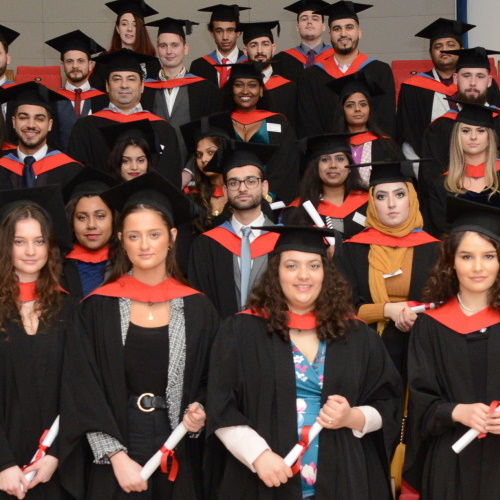The Access to Higher Education Diploma (Digital Technologies and Computer Science) is made up of 60 credits. 15 of these credits are Study Skills units and are not graded. The other 45 are Computing/ICT units which includes an Extended Project’.
All Computing/ICT credits including The Extended Project are graded at Pass, Merit or Distinction depending on the quality of your work.
The Computing units include:
- Programming Fundamentals
- Visual Programming
- Introduction to Robotics
- Implementation of Databases
- Computer Games Development
- Web Design and Creation.
-
Entry requirements
GCSE grades 9-4 (grade A - C) in GCSE Mathematics.
Preferably GCSE grades 9-4 (grade A - C) in GCSE English.
Preferably GCSE grades 9-4 (grade A* - C) in GCSE Science. -
Who is the course for?
The Access to Higher Education Diploma (Digital Technologies and Computer Science) is a Level 3 qualification which prepares people, above the age of 19, without traditional qualifications for study at university.
The qualification gives you the relevant academic subject knowledge needed for higher education study and the opportunity to develop study skills to help you succeed. It is well-established and widely accepted by universities, qualifying for UCAS tariff points that are comparable to the tariff points for three A levels. -
Study methods
You will be taught through a variety of study methods which may include the following: classroom teaching, home learning, practical activities, presentations, group work, remote learning and research.
-
How is the course assessed?
This is a coursework-based course in which the forms of assessment may include: written reports, presentations, tests, examinations and practical experiments.
Students must complete 60 credits to gain the Access to HE qualification. Of these credits, 45 credits are graded as pass, merit or distinction and 15 credits are ungraded. -
More information
There are a number of opportunities associated with this course that are available to enhance your skills application to University. There will also be talks from Alumni students and other professional guest speakers which will help guide you to where you want to go.
-
Where Next – Job Opportunities
With further training, students' progress to a range of careers including:
- Programmers
- Games Designers
- Banking
- Business careers
- Data Scientists
- Cybersecurity, to name a few.
- Programmers
-
Where Next – Further Studies
Learners often but not exclusively progress to Higher Education study in areas related to Computing/Information Technology. This includes:
- Programming
- Artificial Intelligence
- Cybersecurity
- Computing Science
- Robotics, to name a few.
- Programming
-
How to apply
To apply for a course either click the APPLY NOW button - fill out the form online and submit
OR download an application form here and post it to the address on the form.
When we have received your application we will contact you to arrange an interview time.
